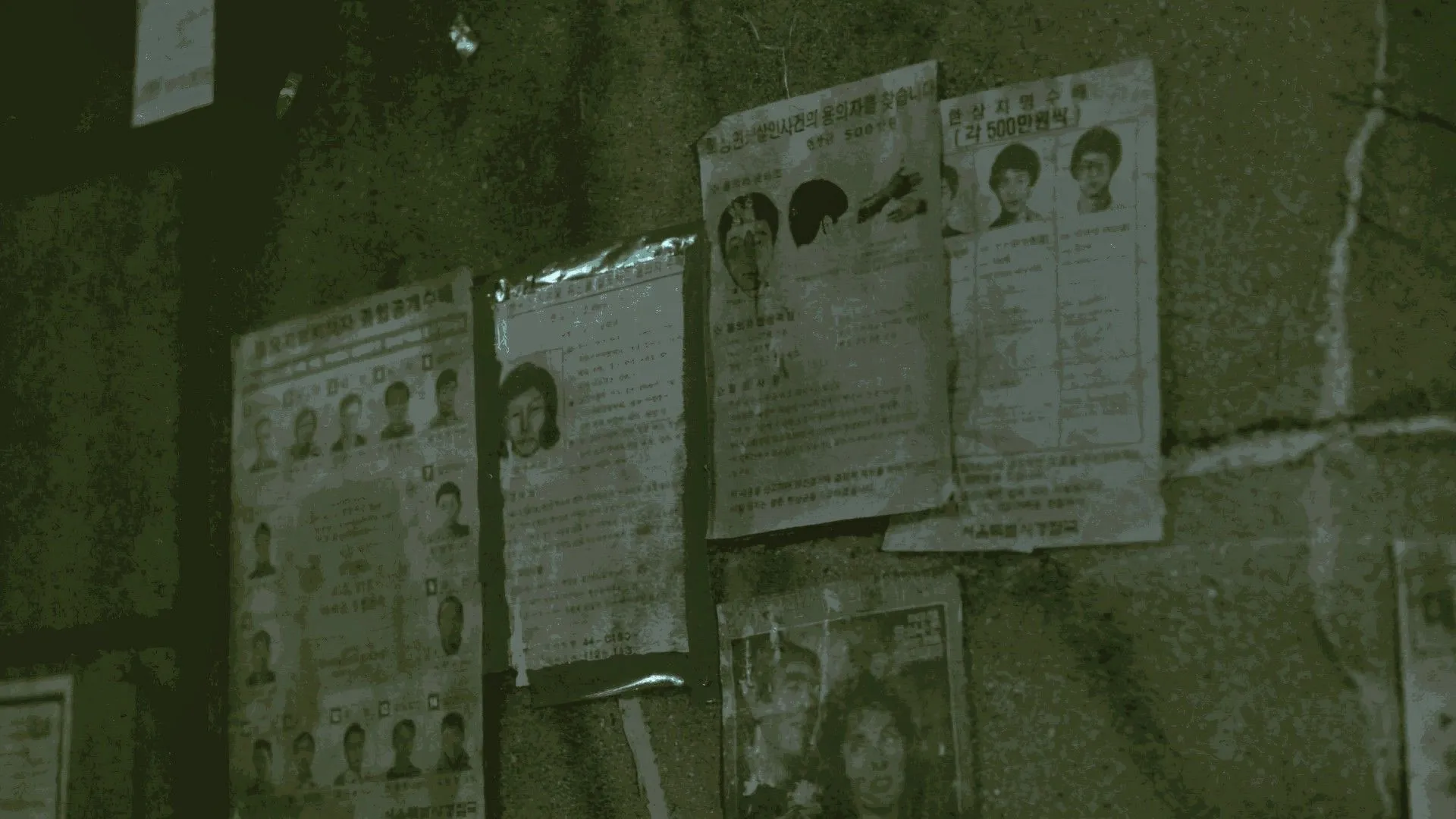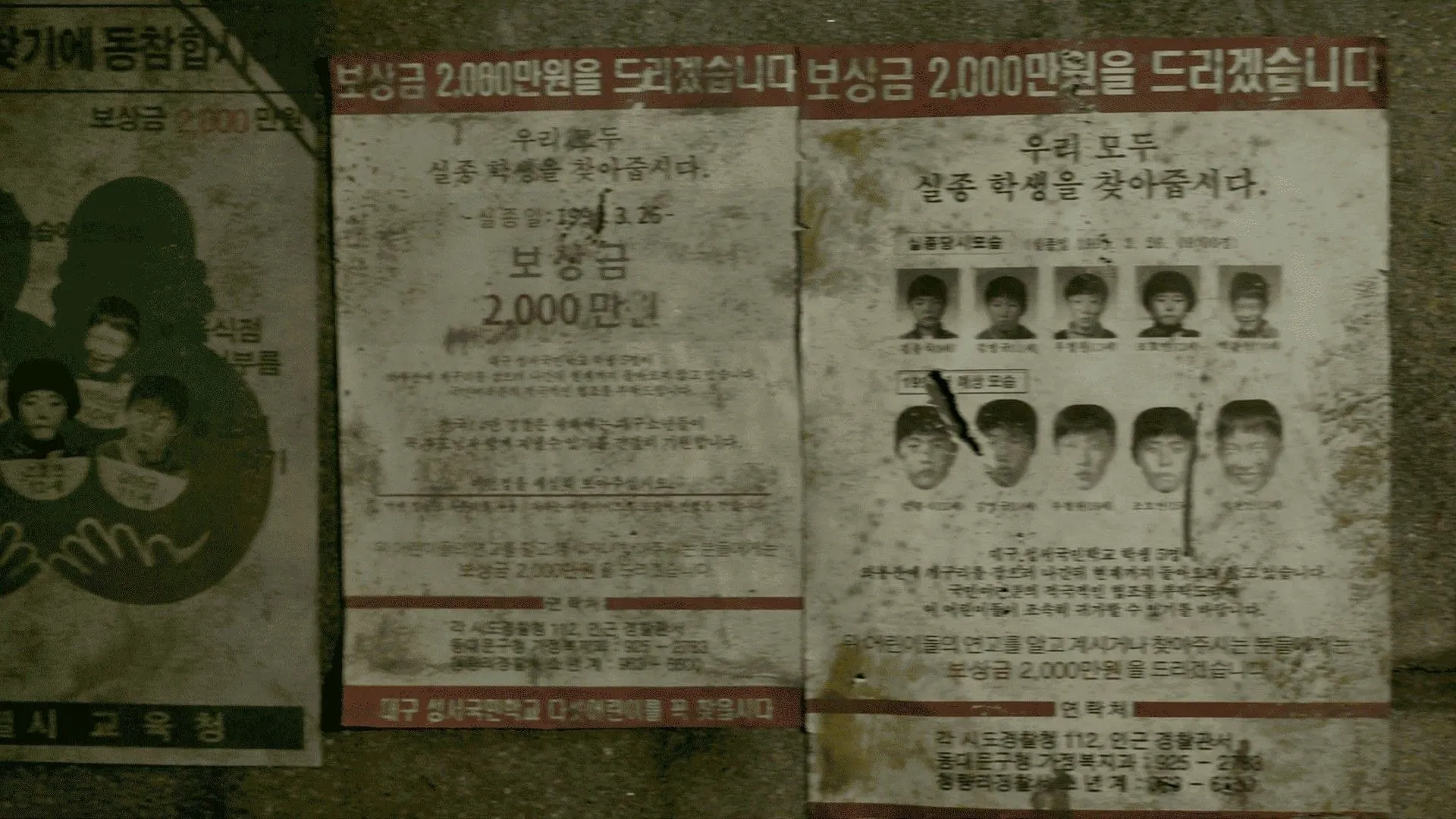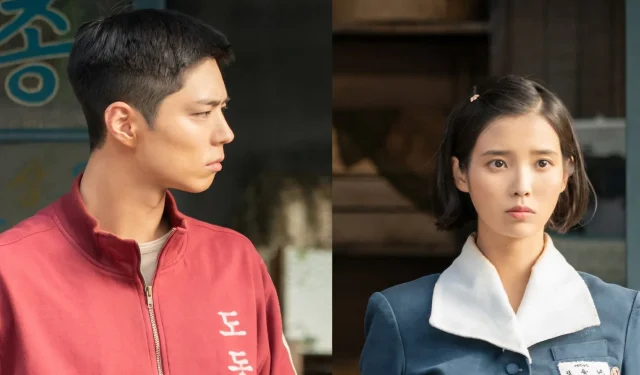The recent episodes of When Life Gives You Tangerines (Episodes 9 to 12) draw chilling parallels to two of South Korea’s most infamous criminal cases from the 1990s: the Hwaseong serial murders and the Frog Boys disappearance. These harrowing real-life events captured the country’s attention and left enduring marks on the psyche of Korean society.
As the narrative unfolds, the drama interlaces reality with fiction, notably showcasing composite sketch flyers reminiscent of the Hwaseong investigation in Episode 9. Furthermore, Episode 10 incorporates a news segment about a 13-year-old victim associated with the eighth murder occurring in 1988, specifically referencing events in December of that year.
By integrating these historical cases, When Life Gives You Tangerines successfully conveys the intense fear and anxiety prevalent during that period, as experienced by characters Oh Ae-sun and her husband, Yang Gwan-sik. Their daughter, Yang Geum-myeong, a college student residing alone in Seoul and working late hours, becomes a source of great concern for her parents amid the alarming backdrop.
The constant presence of crime flyers and news reports throughout the series amplifies the sense of dread, allowing viewers to empathize with the anxiety felt by Geum-myeong’s parents as they vigilantly watch over their daughter from a distance in Seoul.
Examining Korea’s Notorious Hwaseong Murders and Frog Boys Case in When Life Gives You Tangerines
Spanning from 1986 to 1991, the Hwaseong murders are recognized as one of the largest and most complex criminal investigations in South Korean history. This series of brutal killings involving the assault and strangulation of ten women left a palpable atmosphere of fear in the nation. Concurrently, the tragic case of five young boys who went missing in 1991 only fueled the public’s unease. Their remains were not discovered until over a decade later, sparking widespread media coverage and outrage.
1) The Hwaseong Serial Murders: A Case That Changed South Korean Criminal Justice
From September 1986 to April 1991, the Hwaseong serial murders terrorized the citizens of Gyeonggi Province. As reported by The Korea Herald on July 5, 2023, over a span of five years, ten women were sexually assaulted and subsequently murdered in a strikingly similar fashion.
Despite a major investigative effort involving nearly two million police officers, the identity of the assailant remained elusive for over three decades, marking it one of South Korea’s most notorious unresolved cases. The pressure to solve these murders led authorities to employ coercive interrogation techniques, resulting in cases of wrongful convictions, such as that of Yoon Sung-yeo, who spent years imprisoned based on a coerced confession.

Lee Chun-jae, identified as the perpetrator in 2019 through advancements in DNA technology, had previously been behind bars for a different crime. His confession laid bare the failures of earlier investigations and helped exonerate those wrongfully accused. This case catalyzed significant reforms in South Korea’s criminal justice system, leading to improved forensic capabilities.
As documented in the media, the changes initiated from the Hwaseong case have elevated South Korea’s homicide solve rate to an impressive 96.7% by 2021. The haunting echoes of these murders have even inspired notable cultural works, including Bong Joon-ho’s critically acclaimed film, Memories of Murder, setting the stage for When Life Gives You Tangerines to address these profound historical narratives.
2) The Frog Boys Disappearance: A 34-Year Mystery
On March 26, 1991, five boys—Cheol-won, Chan-in, Ho-yeon, Jong-sik, and Yeong-gyu—vanished near Mount Waryong in Daegu while searching for salamander eggs. The local authorities initially downplayed the situation, labeling it a runaway case, which hampered the early search efforts. It wasn’t until days later that national media began reporting on the children’s disappearance, coining the term “Frog Boys.”

Despite thousands of search efforts initiated by distraught families and the public, with the case receiving extensive media attention, the boys’ remains were discovered only in 2002. Found together, their skeletal remains raised immediate suspicions of foul play after early reports insinuated hypothermia as the cause of death—a claim largely contested by forensic experts.
Due to conflicting evidence, including empty cartridges found near their remains that potentially linked the incident to military activity, the investigation remained unresolved. Subsequent developments in South Korea’s criminal justice system in 2015 indicated that even though the original investigation led to a legal impasse after the statute of limitations expired, efforts resumed to seek justice for the Frog Boys.
In honoring the tragic disappearance of these boys, Daegu erected the Frog Boy Memorial and Children’s Safety Prayer Monument, emphasizing the ongoing importance of child safety. Meanwhile, police have assembled a task force to revisit the case, remaining vigilant for any new leads.
The emotional toll of the Frog Boys disappearance continues to resonate within the community and has inspired multiple adaptations in film and other media, most notably Come Back, Frog Boys (1992) and In Search of the Frog Boys (2019), alongside mentions in When Life Gives You Tangerines.
Set against the evocative backdrop of 1960s Jeju Island, When Life Gives You Tangerines beautifully encapsulates themes of first love and the poignant memories that define youth. With performances led by IU and Park Bo-gum, the series, written by Lim Sang-choon and directed by Kim Won-seok, premiered on Netflix on March 7, 2025, releasing episodes weekly until March 28, 2025.


